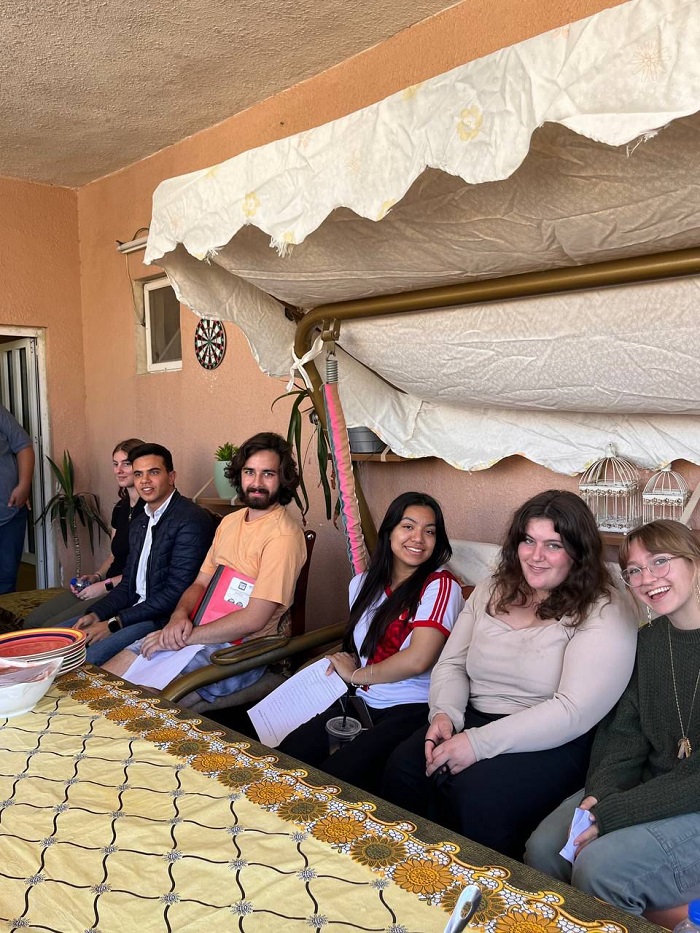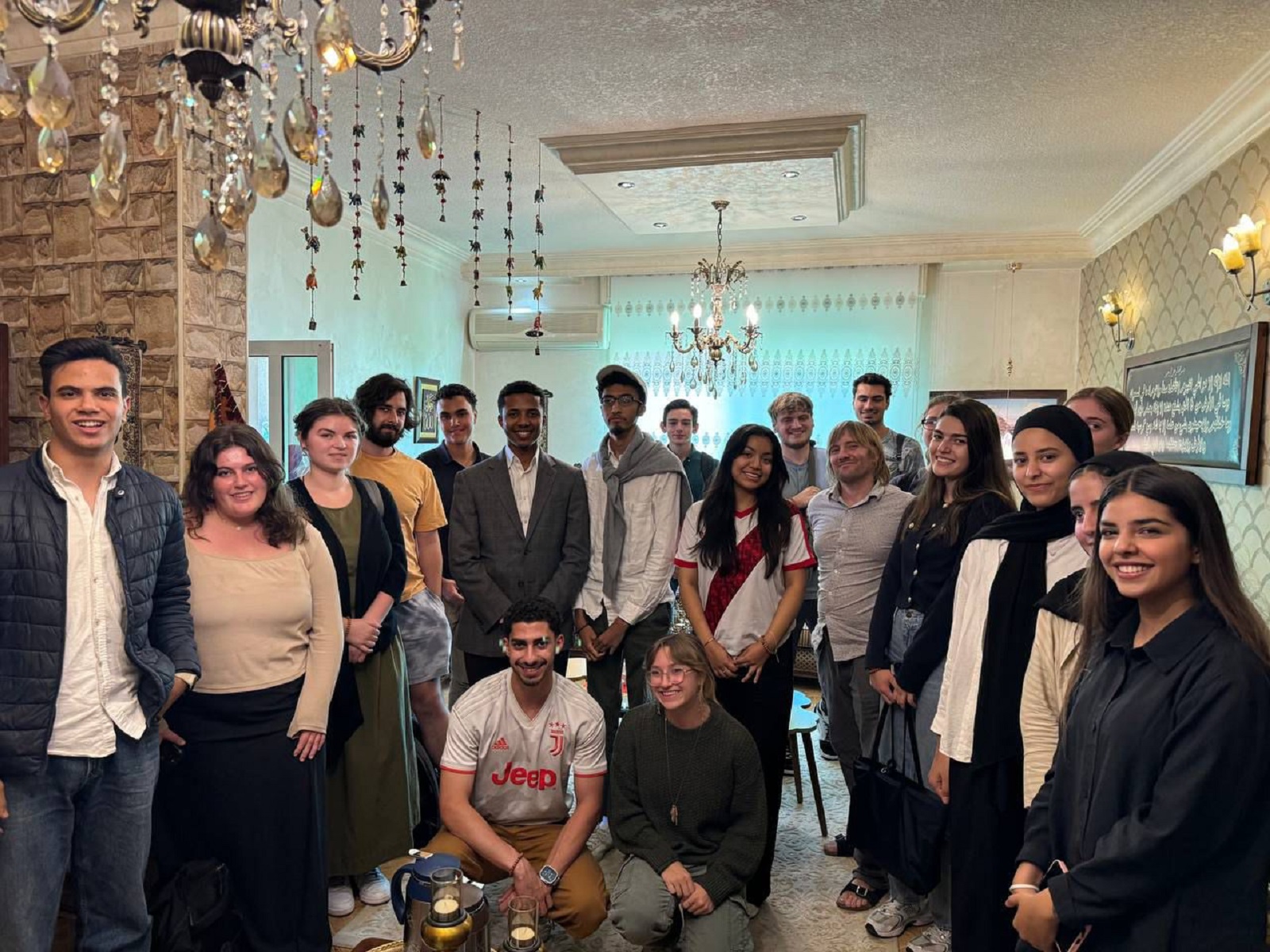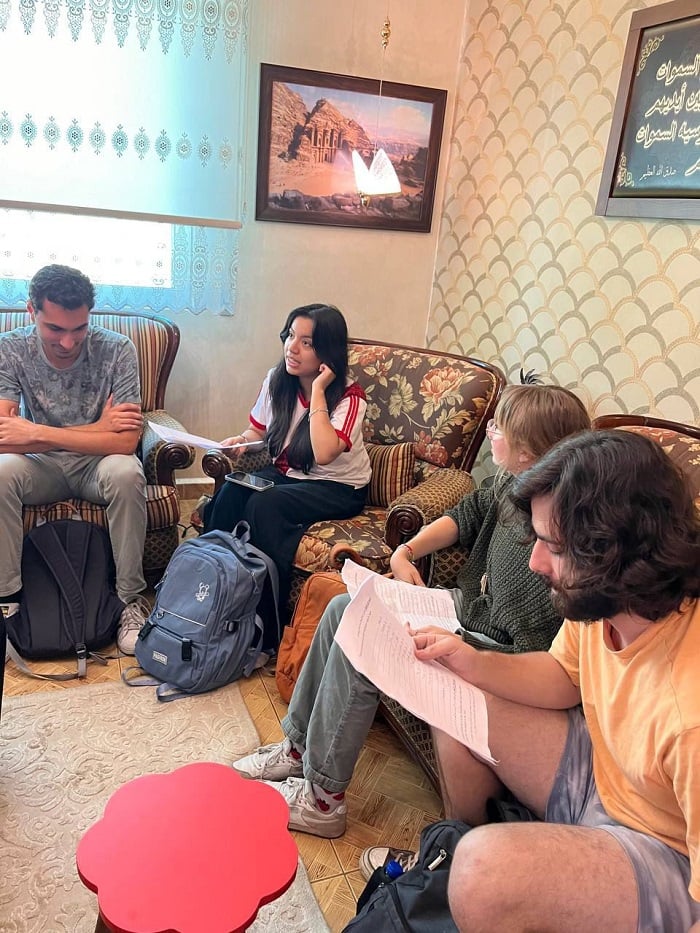Written by Harper Schrader, (Kalamazoo College), Student Correspondent for CET Jordan, Fall 2024
As part of CET’s intensive Arabic language class, we recently participated in a field study component that offered a unique opportunity to delve into Jordanian culture through a visit to a local family’s home. This experience was not only a window into daily life in Jordan but also an invaluable opportunity to practice Modern Standard Arabic (MSA), or Fusha (فصحى), in a practical, real-world setting.
Language Partners
The visit took place at one of our language partner’s homes. Language partners are assigned to students during the first weeks of the program and are instrumental in helping us build a strong foundation in Fusha before we transition to working with language partners later in the semester. They provide guidance, answer questions, and help us navigate the complexities of the Arabic language while also offering cultural insights that are crucial to understanding the nuances of Jordanian life.

In preparation for this visit, our class worked together under the guidance of our Arabic instructor, known as “ustadha” (استاذة) to develop a set of 15 questions. These ranged from asking about hobbies, work, and studies, to lighter topics like favorite foods and colors. The goal was to converse with the family in Fusha, giving us a chance to apply the grammar and verb conjugations we had been studying in class. Since many day-to-day conversations in Jordan are conducted in the local dialect, this exercise was a rare opportunity to practice Fusha in a structured setting, without pressure.
A Warm Welcome
When we arrived at the home, we were greeted with warm smiles and an immediate sense of hospitality that Jordan is so well known for. The people we were interviewing—consisting of friends and relatives of our language partner—generously shared their time and stories with us. The mother, who was our first interviewee, was the person with whom we practiced the questions prepared in class.
After the initial group interview, we split into smaller groups based on our proficiency levels in Arabic. This allowed for more personalized interactions, giving each student the chance to practice Arabic at a level that was comfortable yet challenging.


Experiencing Jordanian Hospitality
One of the highlights of the visit was experiencing Jordanian hospitality firsthand. Alongside a meal, we were served tea, water, and of course, Arabic coffee. This not only deepened our cultural immersion but also offered a moment to pause and reflect on the importance of hospitality in Jordanian society. Sharing food and conversation around a table is such a central part of life here, and it was an honor to be included in this tradition.
Reflecting on this experience, I realized that this visit was about so much more than just language practice. It was about connecting with people, understanding their stories, and gaining a deeper appreciation for the culture that we are living in for the next few months. While Fusha is the formal language of instruction and media, this visit also gave us insight into how Jordanians communicate in everyday life.
As we continue our journey in Jordan, the lessons learned from this field study will undoubtedly enhance our interactions with locals. We are not just learning a language; we are learning how to truly engage with a culture, one conversation at a time. By hearing personal stories and engaging in real conversations, we are slowly peeling back the layers of Jordanian society and becoming more confident in our ability to communicate and connect.